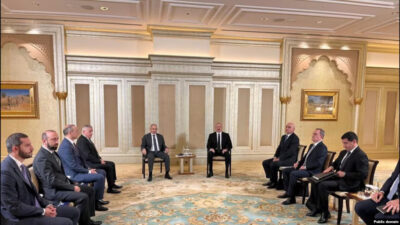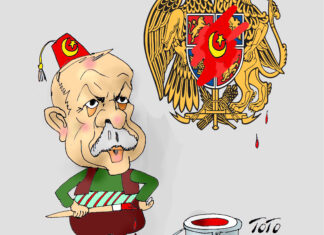If the pundits thus far have believed that the Karabakh conflict is one of the most intractable problems of our time, now new elements have emerged to render the problem even more convoluted and therefore more dangerous, all under the guise of forthcoming peace initiatives.
The first salvo to augment the tensions came from the Organization for Security and Cooperation in Europe (OSCE) Minsk Group co-chairs, the group tasked with bringing the issue to a peaceful conclusion, with a sterner tone than before.
Throughout the negotiations, the co-chairs treated the issues with kid gloves, leaving the initiatives to the parties of the conflict, and agreed to play an advisory role and to consolidate for the international community whatever terms the parties involved found acceptable.
That tone was reversed completely in the statement issued by the co-chairs on March 1. Now an ironclad format is being proposed, and the tone is that of an ultimatum. This transformation seems to be a reflection of the perception of the co-chairs that changes have taken place in the region which are amenable to forcing conditions that thus far have been deemed unacceptable to the parties.
The Azerbaijani government’s positive reaction, contrasting with Armenia’s reservations, if not outright rejection, indicate that the weaker party is Armenia.
We have to be mindful that the co-chairs have been doing their homework all along and are aligning their own self-interests within the framework of the conditions proposed to the parties in the conflict. We should never be so naive as to believe that the co-chairs representing major powers would subordinate their interests to those of the warring parties.








